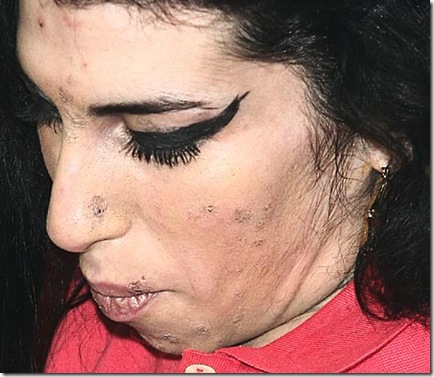
Jack Windsor Lewis has been discussing a question put by Tami Date, who was puzzled by the stressing of the phrasal verb in three sentences in a dialogue from People Speaking.
So I’m terrified of giving her something that’ll bring her out in spots.
səʊ aɪm `terəfaɪd | əv ɡɪvɪŋ hɜː ˏsʌmθɪŋ | ðətl ˈbrɪŋ ər aʊt ɪn `spɒts.
But I believe she comes out in a rash if she touches onions.
bət aɪ bəˈliːv | ʃi ˈkʌmz aʊt ɪn ə `ræʃ ɪf ʃi tʌtʃɪz `ˏʌnjənz.
For goodness sake! Ring up her house and ask them.
fə ˈɡʊdnəs `seɪk. ˈrɪŋ ʌp ə `haʊs ən `ɑːsk ðəm.
The phrasal verbs bring out, come out, and ring up are all lexically double-stressed, which means that we expect both the verb word and the following particle to be accented. Tami wants to know, therefore, how it is that out and up in these sentences are shown as unstressed.
My answer would be more succinct than Jack’s. I would refer Tami to the rule of three (English Intonation, p. 229). This says that whenever we have three potentially accented syllables we have the option of downgrading the middle one.
The option to downgrade potential accents is a pervasive characteristic of English rhythm. It tends to operate whenever an accent is located between two other accents in the same IP.
The potential accents are
…ˈbring her ˈout in ˈspots.In each case we can apply the rule of three and suppress the middle accent. Hey presto! we have exactly the very natural-sounding version that Jack transcribes. (I don’t think there is any specific maximum of successive unstressed syllables in English connected speech.)
…ˈcome ˈout in a ˈrash…
ˈRing ˈup her ˈhouse.
As Jack says,
Whether a speaker chooses to stress them or not depends entirely on how fluently or quickly he or she happens to wish to say the sentence.




I'd never heard of the rule of three, but I think it might get a mention in my lessons quite soon, thanks
ReplyDeleteInteresting. When I downgrade I come up with ˈbring her out in ˈspots and ˈring up her ˈhouse, but come ˈout in a ˈrash.
ReplyDeleteIs “ON” similarly stressed in the phrase “to have something on”?
ReplyDeleteI have got a coat on.
Has he got a hat on?
ReplyDeleteCyberflix TV
Cyberflix TV APK Download
Cyberflix TV iOS
Cyberflix TV PC
Cyberflix TV for Android TV Box